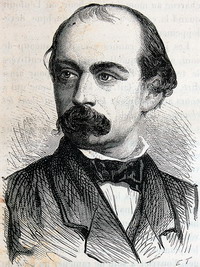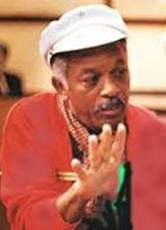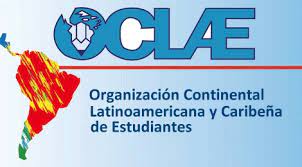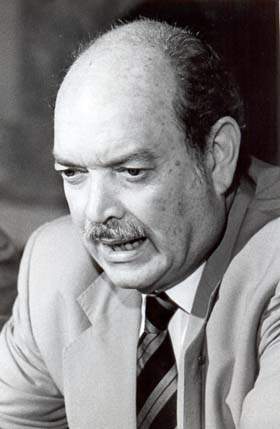
Havana ephemeris. August 11.
1888. Álvaro Reynoso Valdés dies in Havana.

In his work as a man of science he developed as a chemist, physiologist, agronomist and industrial technologist. He was considered the founder of a new scientific vision of Cuban agriculture in the twentieth century. His achievements and contributions in the field of agronomy had a wide national and international impact. He is considered the Father of Cuban Scientific Agriculture. His scientific work exceeded 300 works, including books and essays of specialized articles. His best known work is the Essay on the Cultivation of Sugar Cane.
He also developed an intense work in the Economic Society of
Amigos del País, in which he was in charge of drafting the
"Memories" that collected the main studies and proposals of the prestigious institution. The last years of his existence were devoted, as always, to research.
His birth took place in the Nuestra Señora de la Luz coffee plantation, in
Guanimar, in the Alquizar area, on November 4, 1829.
1929. Guillermo Barreto was born in Havana.

From a very young age he interrelated his life with music. For many years he was a member of the orchestra of the famous Tropicana cabaret in Havana. Fit
He occasionally made presentations with other groups, among them, with the Giant Band of Bartolóme Moré Gutiértrez, Benny Moré and also accompanied great international figures, among others, the American singer Nat King Cole.
In 1959 he was part of the Cuban Quintet of Modern Music, founded by the pianist composer Frank Emilio Flyn and later he was in the Cuban Orchestra of Modern Music and in the Los Amigos Group.
He was regarded as a master drummer. He influenced the way of playing the Cuban percussion of numerous instrumentalists. His mastery was supported by his knowledge of Cuban rhythms and an exceptional talent. He even performed with the National Symphony Orchestra.
He was also invited to participate in important festivals of
music performed in Cuba and traveled through various countries. Your name
appears in the anthologies that have been prepared on Cuban music.
He died in the Cuban capital on August 14, 1991.
1966. The Continental Organization is created in Havana, Cuba.

Latin American Students (OCLAE).
It arises as a result of an agreement of the students, represented by delegates from 21 countries of Latin America and the Caribbean during the IV Latin American Congress of Students. Among the purposes of the OCLAE is to promote and develop unity among students, as well as to strengthen ties with the working class.
2001. Isidoro Malmierca Peoli dies in Havana.

Born in the neighborhood of Lawton, in the Cuban capital, in September 1930, years later he joined the ranks of the Popular Socialist Youth, where he held various responsibilities and, due to his work, came to participate in various events of the communist movement international level. Later he also militated in the party of the same name, an organization in which he also assumed leadership functions.
Beginning in 1959, he was active in developing and defending
of the revolutionary process. He assumed responsibilities within the
State Security and in 1961 he was one of the founders of the
Ministry of the Interior, body in which he came to hold the position
of Vice Minister.
In October 1965 he was the founding Director of the newspaper ”Granma,
Official Organ of the Central Committee of the Communist Party of Cuba.
In 1976 he was appointed Minister of Foreign Affairs of Cuba, and gave continuity to the work carried out for several decades by the Foreign Minister of Dignity, Dr. Raúl Roa.
He played a very active role in dealing with and solving armed conflicts in Africa, Central America and the Middle East, especially starting in 1979 when Cuba was the President of the Non-Aligned Movement. He felt a great attraction to journalism, although he could not fully see his dream of exercising frequently as
journalist.
For his meritorious work he was awarded several distinctions.